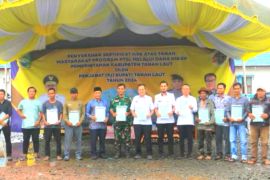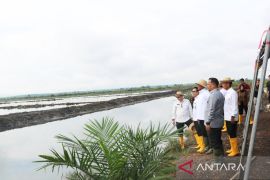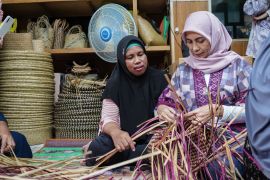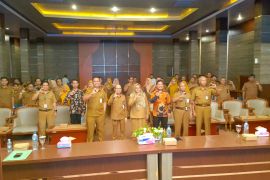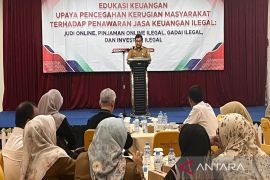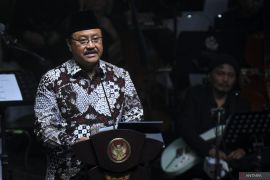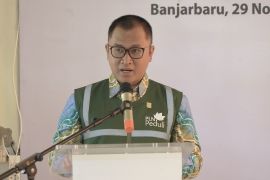Jakarta (ANTARA) - The number of COVID-19-free villages has increased since the government implemented micro-scale social restrictions (PPKM) at the village level, the Ministry of Villages, Disadvantaged Regions and Transmigration has claimed.
“Viewed from the development of village zoning, the number of villages in the green zone rose to 7,578 on February 21 (2021) from 6,292 on February 18,” acting director general of rural development at the Ministry of Villages, Disadvantaged Regions and Transmigration, Rosyidah Rachmawaty, said in a press conference organized by the COVID-19 Response Task Force at the BNPB Building, here on Monday.
She said the number of green zones, or areas with a low risk of COVID-19 transmission, has continued to increase following the application of micro-scale social restrictions that are aimed at limiting public activities to stem the spread of infections.
Despite restrictions on social activity in zones that have many cases, the number of COVID-19 cases has still reached around 36 thousand, she noted.
COVID-19 patients are receiving treatment in accordance with the health protocols set by the local public health service post, village-level COVID-19 Response Task Force, and village-level COVID-19 Response Command Post, she added.
"The village-level command posts are coordinating with the local public health service posts in handling cases," she continued.
As part of the micro-scale social restrictions, the ministry is monitoring the implementation of social restrictions in 22 thousand villages in Java and Bali.
Several activities have been carried out to ensure that the social restrictions are implemented smoothly, including familiarizing the public with the social restrictions, spraying of disinfectants, and providing public hand-washing facilities. (INE)
Related news: Ministry mulls reopening schools outside COVID-19 green zones
Related news: Bekasi city declared 'green zone'; to reopen schools July 13
EDITED BY INE




